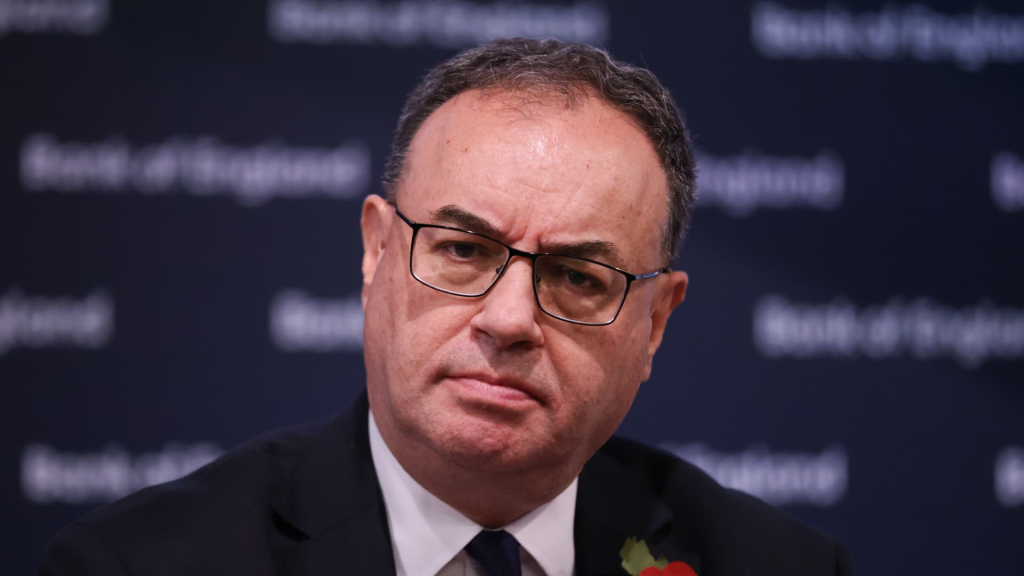Concerns regarding a potential growth shock in the U.K. stemming from U.S. tariffs were highlighted by Bank of England Governor Andrew Bailey on Thursday. Speaking during an interview with Finance Newso’s Sara Eisen at the IMF-World Bank Spring Meetings, he underscored the central bank’s focus on how a slowdown in global trade could impact the British economy.
“We’re certainly quite focused on the growth shock,” Bailey remarked.
As the central bank prepares for its monetary policy meeting set for May 8, Bailey indicated that policymakers will weigh “arguments on both sides” regarding the repercussions of tariffs on growth and the influence of domestic supply constraints on inflation.
“There is clearly a growth issue we start with, with weak growth … but a big question mark is how much of that is caused by the weak demand, and how much of it arises from a weak supply side,” he explained.
Bailey noted that a frail supply side could contribute to inflationary pressures, creating a need to find a balance between these competing factors. “But I think the trade issue is now the new part of that story,” he added.
He pointed out that inflation could be influenced by various broader forces, suggesting that a shift in trade exports to different markets might exert a disinflationary effect. However, he also acknowledged that retaliation against U.S. tariffs by the U.K. government, while unlikely, could increase inflationary pressures.
Despite the economic challenges, Bailey did not perceive the U.K. as nearing a recession at this moment. However, he acknowledged that ongoing economic uncertainty is affecting both business and consumer confidence.
IMF Downgrade
Earlier this week, the International Monetary Fund (IMF) adjusted its 2025 growth projection for the U.K. from 1.6% to 1.1%, attributing this change to the effects of U.S. President Donald Trump’s trade tariffs, higher borrowing costs, and rising energy prices.
The uncertainty surrounding economic forecasts continues as nations engage in discussions with U.S. officials regarding Trump’s expansive tariff policy, which is presently on hold. Notably, the U.S. has established 25% tariffs on steel, aluminum, and autos, along with a 10% tax on other British exports.
U.K. officials remain optimistic about securing a trade agreement with the White House, with U.S. Vice President J. D. Vance stating that there is a “good chance” of finalizing a deal.
The Bank of England maintained its interest rate at 4.5% during its March meeting, prior to Trump’s surprising tariff announcement.
Market expectations suggest that the Bank of England may cut rates to 4% by its August meeting, responding to a bleaker growth outlook and a slowdown in inflation.


























